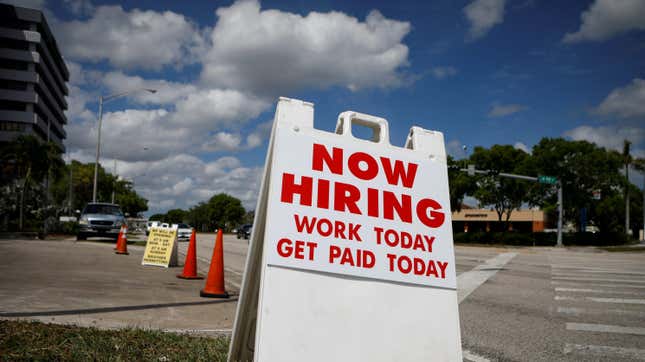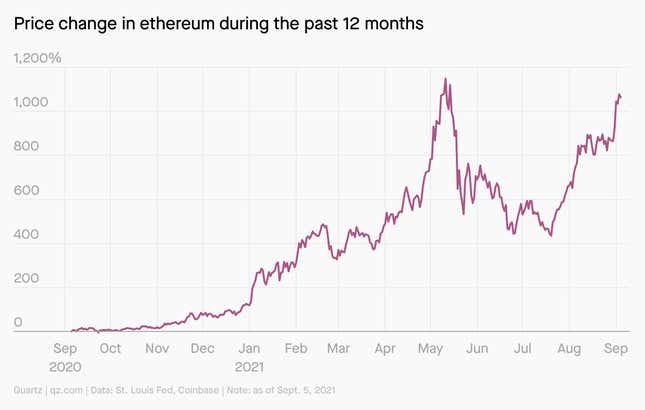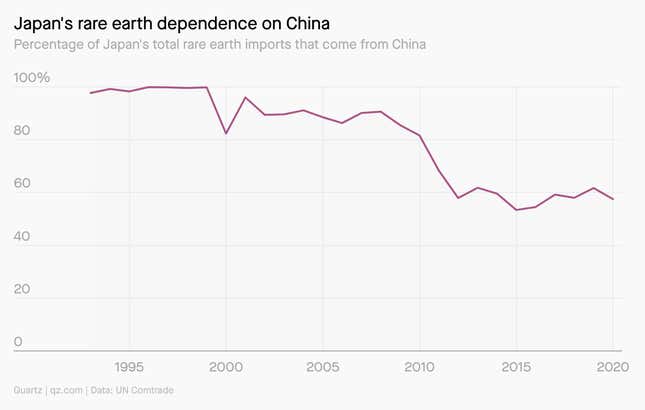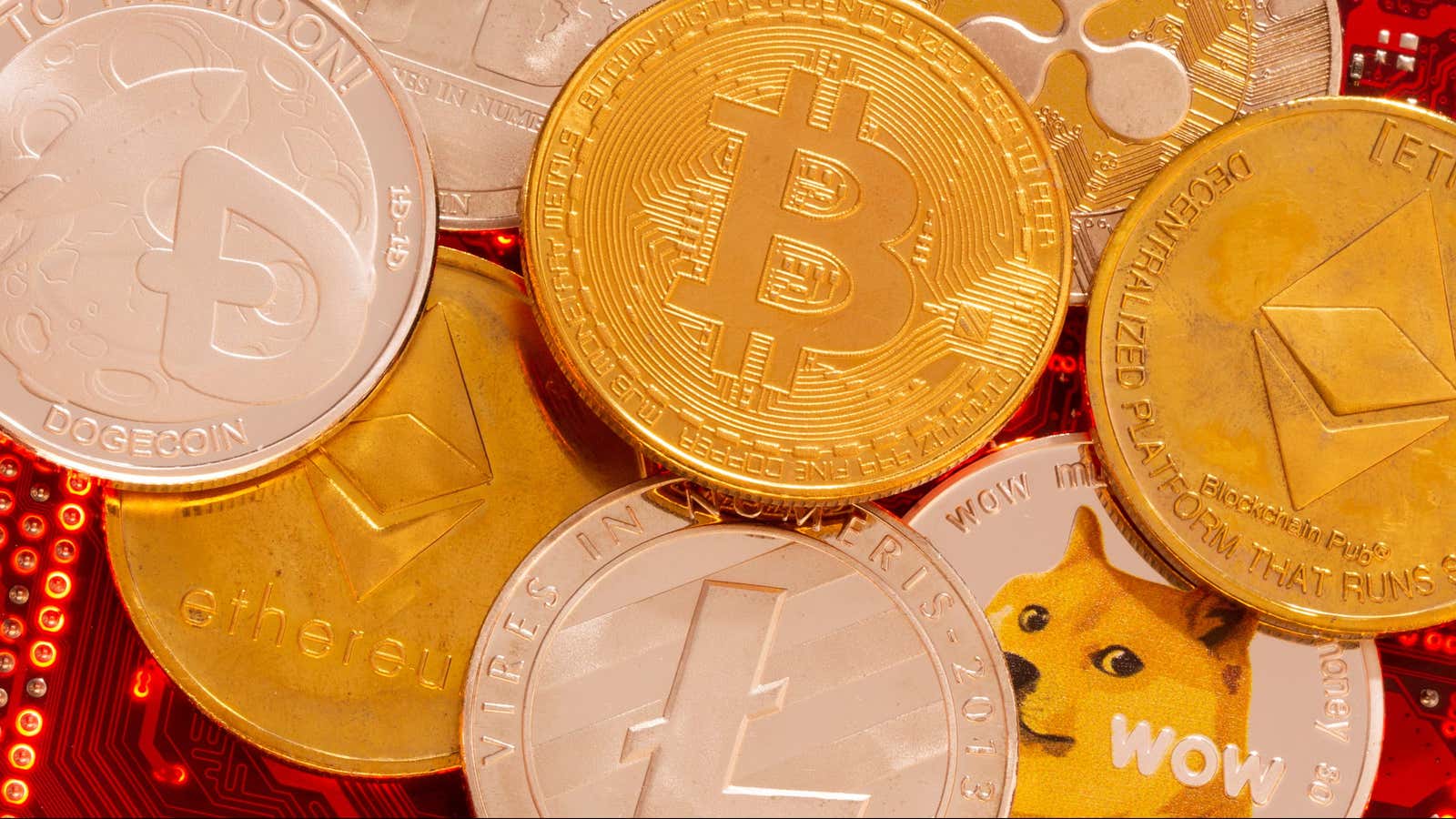Good morning, Quartz readers!
Was this newsletter forwarded to you? Sign up here. Forward to the friend who always makes you go to their house.
Here’s what you need to know
El Salvador just became the first country to make bitcoin legal tender. The government will give $30 in cryptocurrency to every citizen who downloads a digital wallet app.
The global chip shortage could affect car production into 2023. Daimler boss Ola Källenius thinks the situation will improve by then, but there’s no quick fix.
The US Department of Justice is trying to get around the Texas abortion ban. Attorney general Merrick Garland said the department will “continue to protect those seeking to obtain or provide reproductive health services”.
Marvel’s Shang-Chi dominated the US box office. The superhero blockbuster had the second-best domestic opening weekend of the pandemic, but it is locked out of the lucrative Chinese market.
The Wire star Michael K Williams died aged 54. The acclaimed Brooklyn-born actor played the widely feared, morally ambiguous gangster Omar Little in the HBO show, as well as Chalky White in Boardwalk Empire.
What to watch for
Pandemic-driven unemployment benefits just expired for 7.5 million Americans, days after the latest jobs report underscored how far the US economic recovery still has to go. Employment increased by 235,000 jobs in August, well short of the 733,000 predicted by analysts.
The delta variant, which has slowed US consumer spending, is now taking its toll on a labor market already roiled by the realignment of skills and open positions. Wednesday’s Job Openings and Labor Turnover Survey (JOLTS) report should offer more insight.

Why is crypto climbing?
Major crypto tokens are trading at their highest level since May, with bitcoin up 20% in the past month to more than $50,000, and ethereum up 40% to more than $3,900. Crypto prices tend to pingpong around on the latest speculation; here’s what might be exciting the bulls:
- As mentioned, El Salvador makes bitcoin legal tender today.
- A Facebook exec recently said the social network could provide support for NFTs on its digital wallet.
- Crypto miners are powering back up after getting banned in China.
- Elon Musk pointed out on Twitter that he owns bitcoin and some other digital assets and would like them to flourish.

One thing we know for certain: Crypto must be more environmentally friendly. In a recent edition of ✦ The Forecast, a weekly email for Quartz members, we looked at what it would take to decarbonize crypto. Take 40% off your first year with the code QZEMAIL40.
Where to weather the weather
One in three Americans experienced a weather disaster this summer, and things aren’t getting less extreme from here. So where is a future climate migrant to go?
A recent study assessed six factors—heat, wet bulb temperatures, sea level rise, crop yield, fires, and economic damage—to identify the least risky place to live in the US as the climate warms. Of the 10 lowest risk counties, seven were located in Vermont:
- Lamoille County, Vermont
- Franklin County, Vermont
- Orange County, Vermont
- Essex County, Vermont
- Piscataquis County, Maine
- Summit County, Colorado
- Grand County, Colorado
- Orleans County, Vermont
- Hamilton County, New York
- Franklin County, Maine
Vermont’s geography, long cold winters, and mild summers mean it faces some of the lowest risks from dangerous temperatures, humidity, wildfire, and declining crop yields. Also: State and local leaders are taking action now to ensure Vermont can withstand climate change.
What we’re reading
🇨🇳 Xi Jingping wants to keep IPOs close. A forthcoming Beijing stock exchange—the city’s first—is China’s latest attempt at a “Nasdaq alternative.”
💸 Mobile banking is winning over Ivorians. 94% of Ivory Coast’s high school students pay their tuition via mobile money, while only 19% of the country’s 25 million people have a bank account.
👶 US midwifery is on the rise. Enrollment in midwifery programs has climbed more than 20% since 2015, and the number of midwives has more than doubled since 2010.
🎒 India’s school children lost a year to Covid. In the absence of physical classrooms, nearly 40% of students in underprivileged households have not been studying at all.
🇨🇳 Japan is defending its rare earth industry from foreign takeovers. Sectors vital to the production of batteries and wind turbines are now national security concerns.

Surprising discoveries
Chinese “butler cafes” rent out sensitive men. Fed up with patriarchal relationships, women pay over $60 to spend time with a man who will actually listen.
Weibo banned K-pop stan accounts for promoting “irrational star worshiping.” One account had crowdsourced funds to customize an airplane to celebrate a BTS member’s birthday.
Ransomware hackers finally took a holiday weekend off. After striking distracted victims on Memorial Day, July Fourth, and the Lunar New Year, cybercriminals rested on Labor Day.
A Walmart billionaire unveiled plans for a city in the desert. He just needs $400 billion, permission from the government, and 5 million people to move there.
There’s nowhere left to hide from your vacuum cleaner. Dyson has filed patents for cleaning robots that can climb stairs and open drawers.
Our best wishes for a productive day. Send any news, comments, government-backed bitcoin, and all-terrain roombas to hi@qz.com. Get the most out of Quartz by downloading our iOS app and becoming a member. Today’s Daily Brief was brought to you by Hasit Shah, Nicolás Rivero, and Kira Bindrim.
